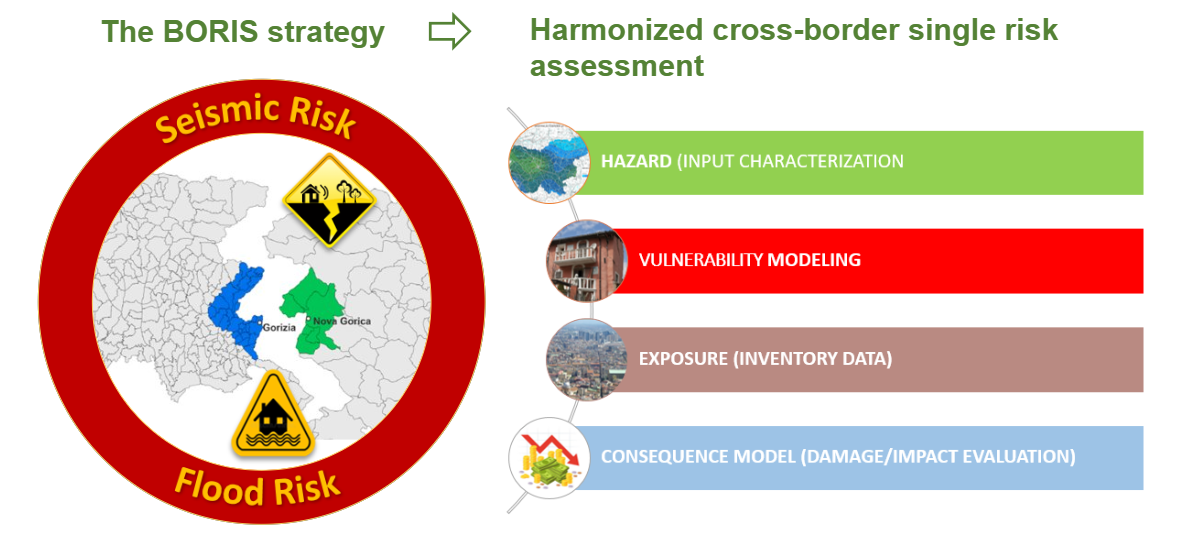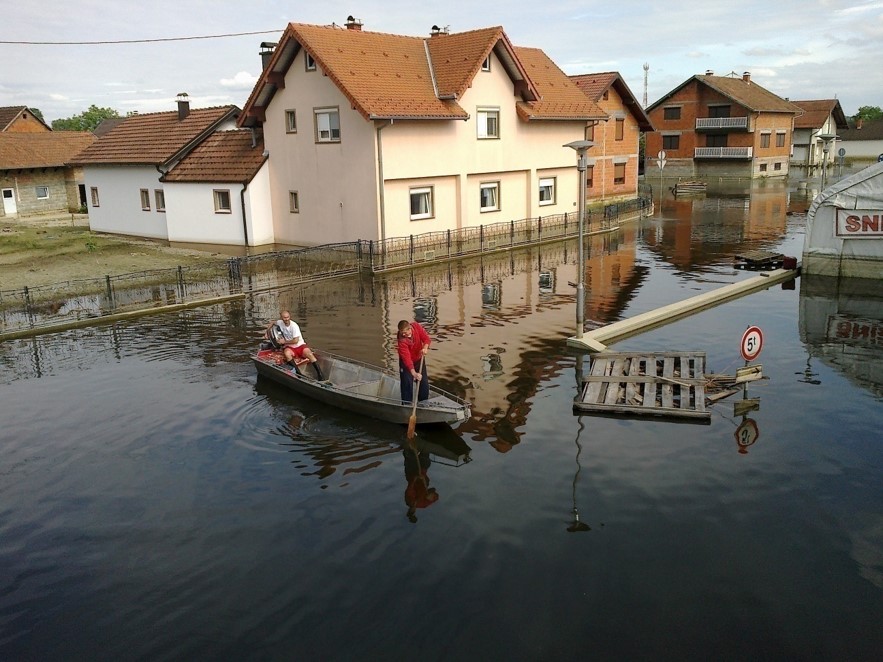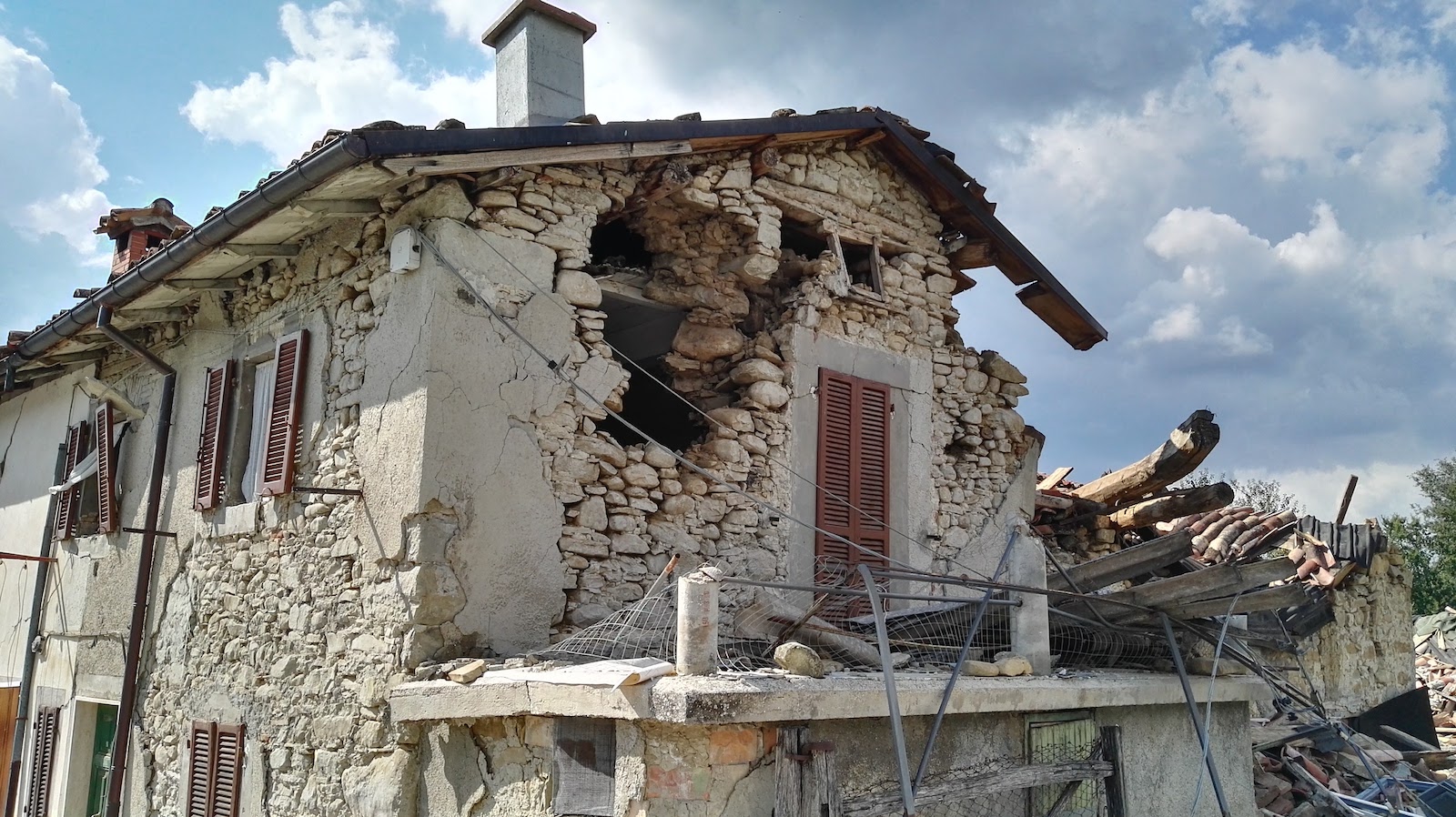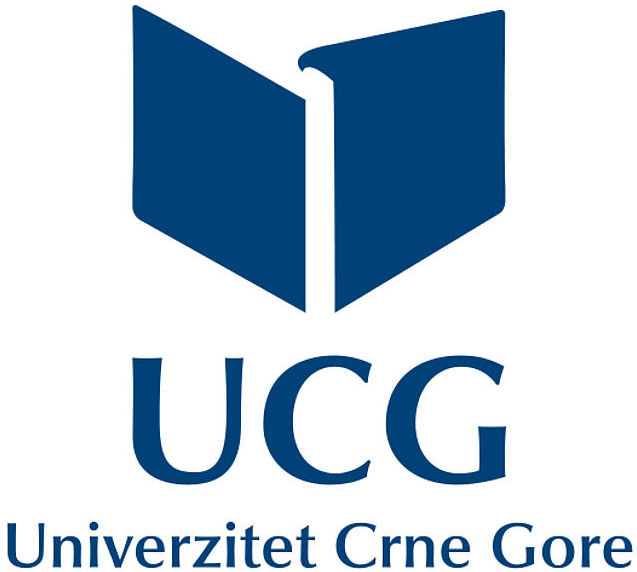Cross border risk assessment for increased prevention and preparedness in Europe: way forward
Development of a shared methodology for the management of transboundary seismic and flood risk
Considering the need expressed by local civil protections involved as stakeholders in BORIS, particularly to enhance the multi-risk analysis methodology proposed for an effective use towards emergency planning, the BORIS2 goal is to deliver a methodology and tool to support stakeholders to undertake strategic decisions to improve emergency planning. The multi-risk analysis methodology developed in BORIS, that was implemented at municipality scale, will be modified for application at sub-municipal level (e.g. at census tract level or for square grid units) considering relevant multi-risk scenarios. This will enable to highlight urban areas that are most impacted by single and multiple risks for a better planning of emergency phase. Moreover, critical infrastructures and their connections will be included for the evaluation.
Expanding on the concept of Limit Condition for the Emergency and its associated evaluation model proposed by the Italian Civil Protection Department, which is aimed at checking the physical efficiency after a seismic damaging event of the emergency system of urban settlements, a multi-risk approach that could be applied also in cross-border regions will be proposed delivering a comprehensive methodology for institutions operating in different national context.
A “scenario-driven” approach will be tested for the assessment of the impacts of seismic, flood or multi-risk events on assets and infrastructures relevant for emergency management. Results of BORIS2 will be integrated in the existing BORIS platform, ensuring its interoperability. The BORIS2 solution will be replicable in other cross border areas and the project results and dissemination activities will be designed to exploit knowledge sharing and capacity building through the UCPKN platform.
BORIS2 builds on the project BORIS (2021-2022).
Latest BORIS2 news
- BORIS2 Leaflet
 The BORIS2 leaflet provides a quick overview of the project goals, its partners, activites and outputs. In case you would like to learn more, please visit the project page on the UCPKN platform or the BORIS website. View or download it here:
The BORIS2 leaflet provides a quick overview of the project goals, its partners, activites and outputs. In case you would like to learn more, please visit the project page on the UCPKN platform or the BORIS website. View or download it here: - BORIS2 has started!
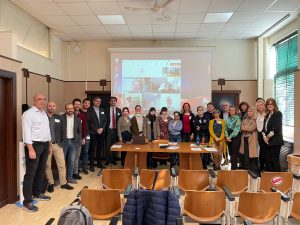 With BORIS2, we continue our efforts to empower stakeholders with a harmonised multi-risk assessment methodology and a tool supporting riskassessment and emergencyplanning in cross-border areas. In BORIS2, the multi-risk analysis methodology developed in the first project BORIS, that was implemented at municipality scale, will be… Read more: BORIS2 has started!
With BORIS2, we continue our efforts to empower stakeholders with a harmonised multi-risk assessment methodology and a tool supporting riskassessment and emergencyplanning in cross-border areas. In BORIS2, the multi-risk analysis methodology developed in the first project BORIS, that was implemented at municipality scale, will be… Read more: BORIS2 has started!
Project partners
Funding
BORIS is a project funded by Directorate-General for European Civil Protection and Humanitarian Aid Operations (DG ECHO).
GA n° 101140181 – BORIS2 – UCPM-2023-KAPP-PREV – Project co-funded by the European Union Civil Protection

Contact
CI3R – BORIS2 Coordinator
Italian Center for Research on Risk Reduction CI3R
via Properzio 5
00193 Roma
centrorischi@ci3r.it

